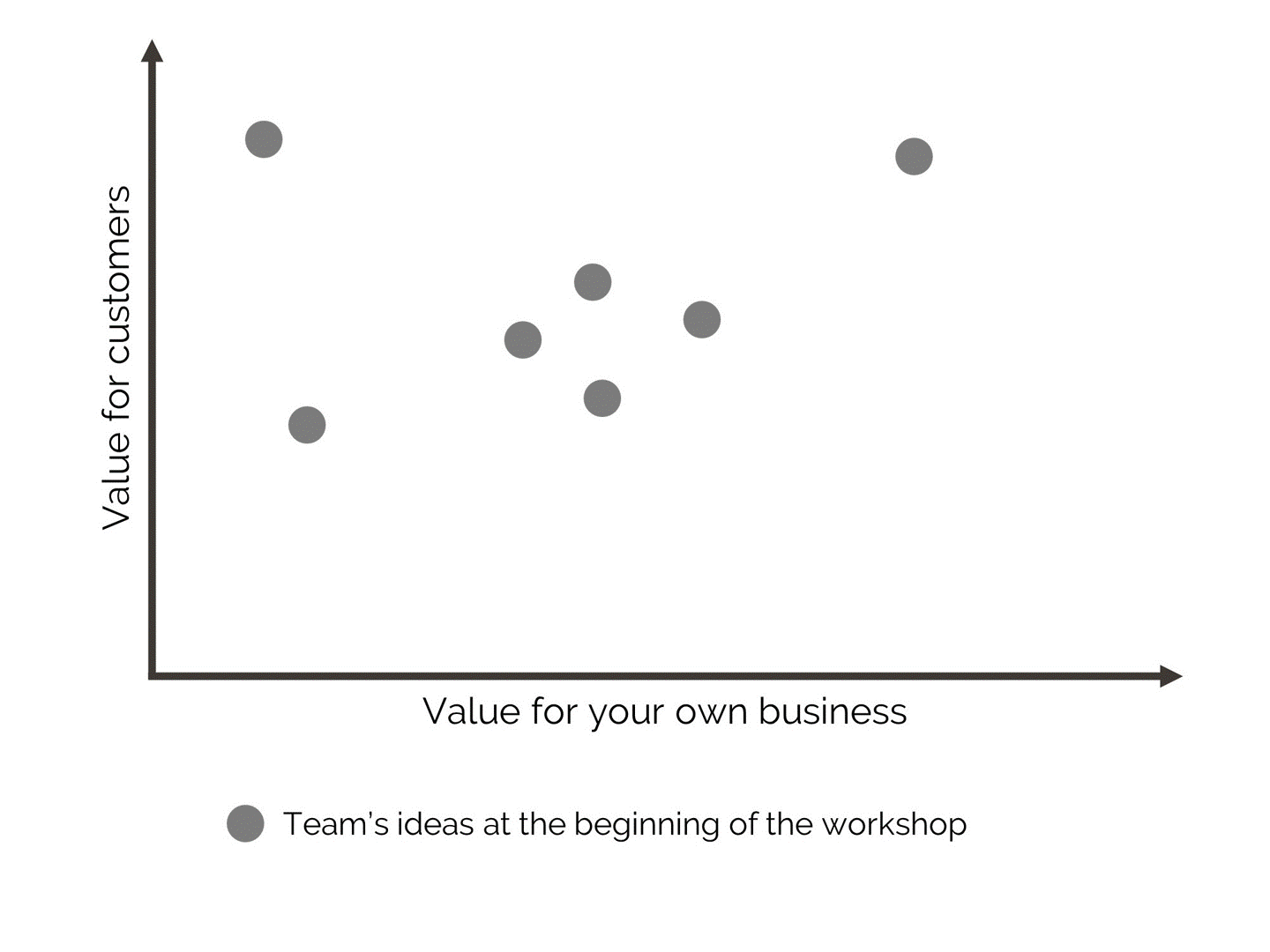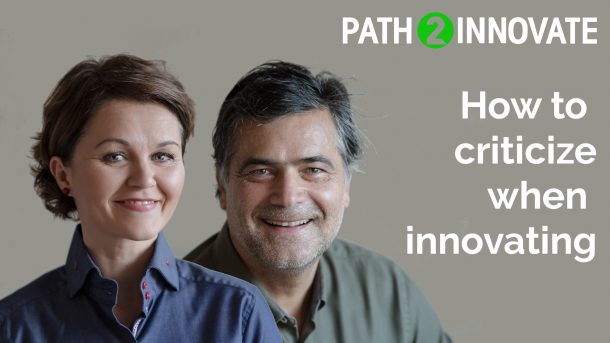This sounds gruesome, doesn’t it? Don’t worry, this post is not as violent as it sounds. In fact, we are referring to a term from literature here. You might have heard of the phrase “kill your darling” before. It is a quite common concept used by writers.
”Darlings, in writing, are the words, sentences, paragraphs that we are often most proud of. We love them, to the point that we almost don’t care if those bits are clear to readers or not. We love them, and we want to keep them.”
And something similar happens in any idea creation session in businesses. There is a problem to be solved and in a search of a new idea we get together for a brainstorming sessions and collect all our best ideas. And since we think they are our best ideas, our darling, we have a hard time to let them go and we will fight for them.
Sometimes we have to kill our initial ideas
But that is why we need to kill our initial ideas. And that is also part of our workshops. In our ideation session we also kill the initial ideas and darlings, because what we want are the best ideas. And those are most often times not the first ideas (I will tell you more about this later).
The very first initial ideas are coming from our conscious mind. From knowledge that we obtained by reading something, watching TV or listening to someone else. However, the conscious mind is usually not the birthplace of our best ideas. For those we need to go much deeper. And to get there, we spend some time to connect with ourselves, engage our senses and have fun. Only after that we proceed to the second ideation session, where we produce as many ideas as possible and they have to be new and different from our initial idea.
Learn to let go of your darling
In most of our workshops, we gather the initial ideas (which we kill later on), then we produce new ideas and later we evaluate all ideas based on different criteria, e.g value for customers or value for the business etc.
And really, the initial ideas rarely get a high value, most often they end up to not be prioritized. The ones that really make a difference are usually the ideas developed in our second ideation session, after killing the darlings. And that is also a proof, that there is a need to prepare the brain for good brainstorming.
In our seminars we always evaluate all the ideas – both initial ones the team has in the beginning and the new ones that develop during the seminar. This picture shows how this has turned out in one of our latest seminars. You can see, that barely any of the initial idea had a high value for either the company or its clients.
Just imagine we had sticked to the ideas from the first ideation session only. The company would have proceeded only with the most obvious, sometimes conventional, definitely not most innovative and not value bringing ideas.

P.S. We all know that often software or engineering companies have this problem. Engineers love their products and their ideas. (who cares about the business or clients? 🙂 ) And they are able to spend many years on developing the idea they love, because they got so attached to their darlings. And that can be very costly to the business. So better to spend more time on your ideation process, kill darlings faster and then innovate and succeed.
Are you ready to kill your darling in exchange for some brand new and innovative idea? Let us know.

